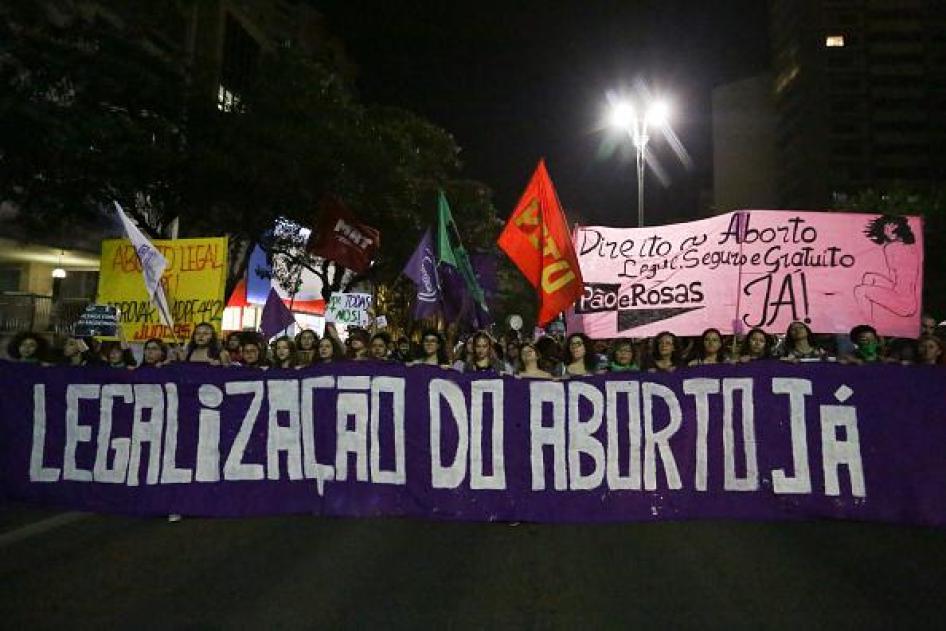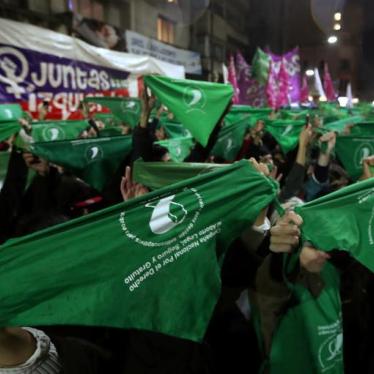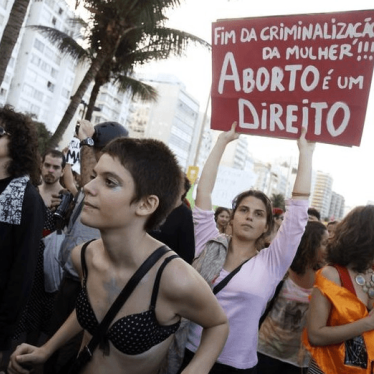Ingriane Barbosa Carvalho, a mother of three in her early 30s, died two months ago in Brazil. The medical examiner’s report states that she died of complications from an unsafe abortion, and the story made headlines last week when the provider was arrested. Carvalho is one of the casualties of Brazil’s harsh abortion law.
A case currently before the Supreme Court could expand access to abortion in Brazil. On August 3 and 6, experts from all over the world, including Human Rights Watch, will testify in the case, which challenges the criminalization of abortion during the first 12 weeks of pregnancy.
Most abortions are illegal in Brazil. Women and girls with resources can travel abroad to terminate pregnancies or find safer clandestine abortion providers. But for those like Carvalho with fewer resources and little access to information, the only options are to risk their health and life with a clandestine abortion, or to continue the pregnancy.
Media reports said that Carvalho tried to end an unplanned pregnancy using home remedies and then, when they failed, sought an abortion from an unsafe provider who inserted the stalk of a castor oil plant into her uterus. She went to the hospital with a fever and chills, and died a week later of a serious infection.
Hundreds of thousands of women and girls have abortions in Brazil each year, most of them clandestine and many unsafe, because abortion is so heavily restricted. The deaths of some never make the news. And many others who have clandestine abortions in isolation – without support, often suffering through health complications, uncertainty, or fear – survive, and quietly carry their stories with them. Human Rights Watch has interviewed a few of these brave women, and many others have shared their stories as part of a campaign led by Anis – Institute of Bioethics and Think Olga, two Brazilian groups.
The case before Brazil’s Supreme Court could push the country’s laws more into line with its international human rights obligations. It could make it possible for women like Carvalho to seek help from trained medical providers and safely terminate pregnancies for any reason in the first trimester, without resorting to back alley clinics and dangerous methods. No woman or girl should have to put her life or health on the line to end a pregnancy she does not want.











